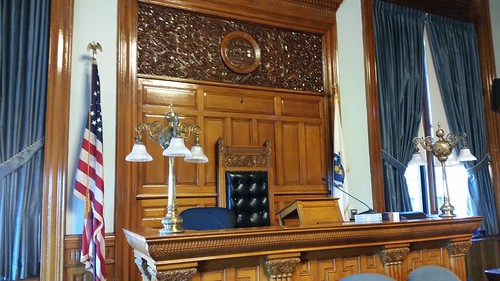City Council Review: 2018

Mimi Parseghian, who regularly contributes her weekly preview of Lowell City Council meetings
As Dick mentioned in his Lowell Year in Review , the “nine victors in the bruising 2017 Lowell City Council race” gathered on January 2, 2018 to begin the municipal meeting year.
In spite of the single-issue race, (Lowell High School), the 2018 City Council’s focus, discussions, decisions and votes dealt with other major issues that impacted and will continue to impact the City.
Of course, the funding and construction of the new High School will dominate the City Council for years. In addition to all the motions and votes that can be classified as administrative, constituent driven, or reacting to an unexpected situation, there were some major decisions that will shape Lowell for years to come.
First and foremost is the voting right lawsuit. (Please read Dick’s Dec. 16th Week in Review for background information on the suit). Mayor Bill Samaras appointed a 3-person Ad-Hoc Sub-Committee on Election Laws with Councilor Vesna Nuon as its Chair, and Councilors Ed Kennedy and John Leahy as members.
Starting in late January, according to my calculations the City Council met 4 – 6 times in Executive Session to discuss the lawsuit; including at their last meeting this calendar year.
In early May, Councilor Nuon introduced a motion to have this Committee along with the Election Department implement public listening sessions regarding this law suit. At the December 11th meeting, Councilor Nuon presented the Sub-Committee report. The Sub-Committee had six public meeting throughout the City. At that meeting the Council voted to “encourage the City Solicitor to engage in mediation with plaintiffs.”
Come 2019, we will need the Council to come up with a proposed settlement that will prevent a Federal Trial or a Federal Judge imposing his decision. The City cannot afford another internecine battle and more importantly it is the right thing to do.
On January 1st, the City will have a ban on “single-use plastic bags.” Establishments under 3,000 square feet are not impacted by this ban. The Council voted 6 in favor and 3 present. At the time the Council took the vote in May, a similar legislation was pending in the State’s legislation. But the state lawmakers decided not to enact it and left it to the cities and towns. Eighty-eight Mass cities and towns currently have such a ban; including Tyngsborough, Westford and Tewksbury (April 1, 2019). Interestingly, Chelmsford rejected a single-use plastic bag ban but voted to impose one on plastic straws and stirrers. I do not think that regional retailers will have a two-track policy on using plastic.
One of the arguments raised is that the shopper will have to pay for the new type of bags. My answer is why does the conscientious consumer pay for others using plastic bags, not once but twice. The first time when the store gives them unlimited plastic bags. The second is when the City gets penalized financially for the difficulties of getting rid of these bags.
Two other topics to watch next year are diversity in the employment of city workers and a potential competitor to Comcast. The first topic has been championed by Councilor V. Nuon who has introduced a number of motions on this subject. The second resulted from a motion submitted by Councilor Jim Millinazzo which resulted in a meeting with cable provider RCN and the Administration.
Throughout the year, the Council addressed many other issues, including the opioid epidemic, homelessness, traffic patterns, zoning violations, the school department ‘s financial and maintenance issues, and economic development. A lot of time and effort goes into properly preparing for these meetings. For example, it must take hours to read and comprehend all the information provided by the Administration. City Manager Donoghue’s Directors and Managers do an excellent job in that area.
Unfortunately, due to the current agenda structure if a document is perceived to be significant, it is often sent to a Sub-Committee meeting instead of a full discussion on the Council floor. Perhaps next year, the Council will review its meeting rules and try to update them. Maybe the first agenda item should be the Council Motion so that the public that is waiting to speak can be accommodated and thus eliminate the need to “suspend the rules” to take agenda items out of order.